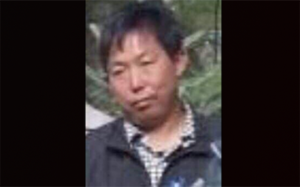 Lekshey also known as Yeshe Thupten, a former Tibetan political prisoner, has died in Lhundrub county in the Tibet Autonomous Region after prolonged illness resulting from years of torture he suffered while in a Chinese prison. Yeshe Thupten was a monk at Phenpo Nalanda Monastery and was arrested by the Chinese authorities in 1995 for protesting against the Chinese government’s propaganda on “patriotic re-education”. Yeshe spent five years in prison and by the time he was released in 2000 his health was critical.
Lekshey also known as Yeshe Thupten, a former Tibetan political prisoner, has died in Lhundrub county in the Tibet Autonomous Region after prolonged illness resulting from years of torture he suffered while in a Chinese prison. Yeshe Thupten was a monk at Phenpo Nalanda Monastery and was arrested by the Chinese authorities in 1995 for protesting against the Chinese government’s propaganda on “patriotic re-education”. Yeshe spent five years in prison and by the time he was released in 2000 his health was critical.
Yeshe was held in Gutsa prison for the first two years and later transferred to the notorious Drapchi prison to complete his five yearsentence. Yeshe was subjected to severe interrogation and violent treatment in prison which took its toll on his physical and mental health. His family is reportedly under “close surveillance” by the Chinese government and no further information is available about his death. The families fear persecution by the Chinese government were they to disclose any information about the circumstances surrounding his death.
Tibetan political prisoners continue to suffer even after their release from prison. Former political prisoner Dhondup Wangchen, recipient of the Geveva Human Rights Summit’s Courage Award recounted his experiences in the acceptance speech; “Life for a Tibetan political prisoner after his release is worse than hell. I was under constant surveillance. I couldn’t meet my friends and relatives because it would put them in trouble. I couldn’t find a job because no employer wanted to antagonise the Chinese Government by employing a former political prisoner. I was not permitted to go anywhere without the authorisation of the Chinese authorities. I couldn’t afford medical care because we were deprived of medical subsidies.”
Freedom House, the United States-based organisation conducting research and advocacy on democracy, political freedom and human rights, ranked Tibet as the second least free region in the world in its report Freedom in the World 2019.




 Print
Print Email
Email